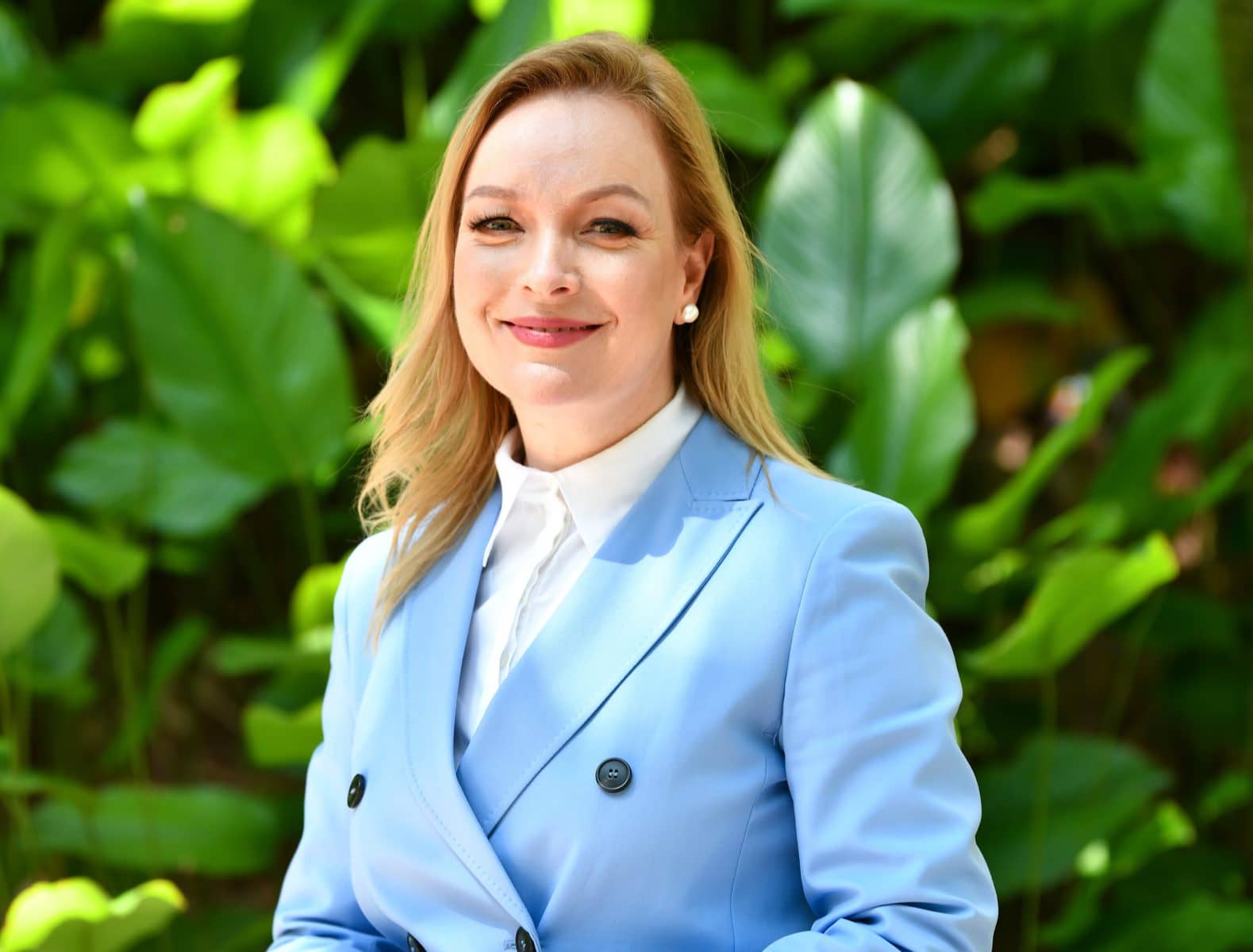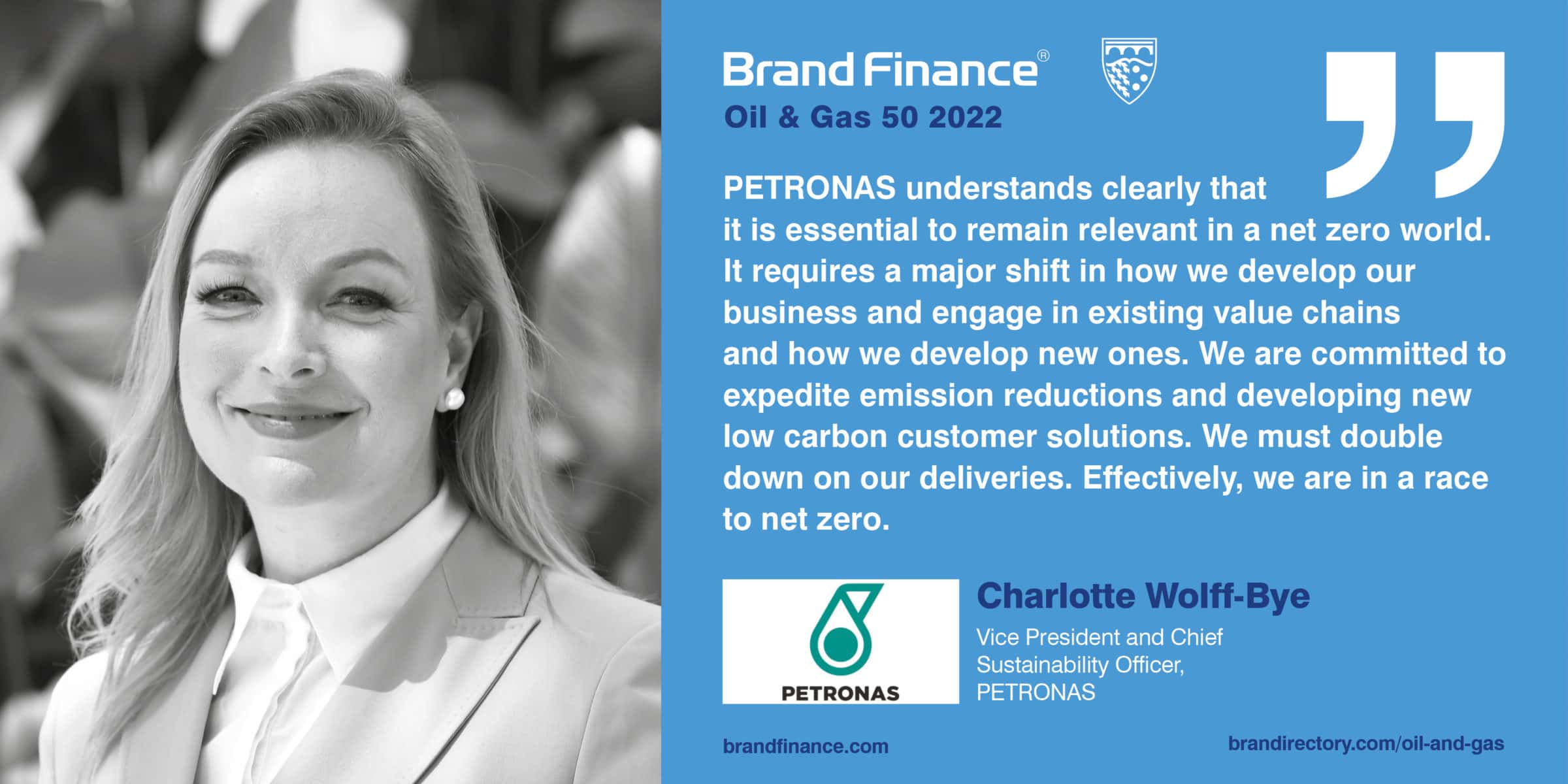Climate change is one of the greatest challenges facing our society today. Globally, the energy sector is undergoing a major transformation to shift from fossil-based systems towards low-carbon solutions to address climate change and stimulate opportunities for sustainable economic development in a low-carbon future. PETRONAS recognises the importance of the energy transition and the opportunities that it presents and have taken progressive steps to futureproof the Organisation.
This represents both an existential risk and an opportunity that requires investors, companies, policymakers and stakeholders across society to balance competing obligations in the present, while working toward sustainable growth.
Driven by this, PETRONAS strives to explore new opportunities and drive growth for the business, guided by their four sustainability lenses, and seven prioritised United Nations’ Sustainable Development Goals (SDGs).

PETRONAS’ Statement of Purpose: A progressive energy and solutions partner, enriching lives for a sustainable future, encapsulates not only their purpose as a corporation but also PETRONAS’ responsibility in spearheading efforts towards a sustainable future and enriching lives.
In addressing the need for the oil and gas industry to establish clear targets and actionable plans to progress towards a net-zero future, in 2020 PETRONAS become the first oil and gas company in Southeast Asia to declare our net zero carbon emissions by 2050 (NZCE 2050) aspiration.

This aspiration is supported by their 4 decarbonisation efforts namely carbon capture transportation and storage, flaring & venting, energy efficiency and electrification. PETRONAS is working with their stakeholders to pave the way for a responsible transition, while developing multiple growth pathways in low carbon energy and solutions, capable of meeting long term energy demands.
Interview with PETRONAS’ Vice President & Chief Sustainability Officer, Charlotte Wolff-Bye

Vice President & Chief Sustainability Officer,
PETRONAS
What does a low carbon future mean to PETRONAS?
As Malaysia’s national oil and gas company with an extensive international reach, we acknowledge the important role we have in supporting sustainable development in all the locations we are present, with a specific emphasis on driving a low-carbon energy future.
The future needs to be low carbon and that means a transformation across society in how we produce and consume energy. The required energy transition will be shaped by a common vision across value chains, including our employees, partners, suppliers, customers, and other stakeholders, of what a low carbon economy will entail.
We firmly believe that real positive change can only occur through collective action, a more assertive approach and strong commitment towards sustainability.
The energy transition is a once in a generation opportunity to create more opportunities and prospects of wellbeing for more people and future generations. Together with our stakeholders, we are collectively trying to make the shift as orderly as possible, keeping responsible and equitable growth top of mind.
Scientific consensus on climate change is clear, manmade carbon emissions need to peak before 2025, drop drastically as soon as possible and reach “net zero” by 2050.
PETRONAS is responding in two ways. First, we have set our sights to achieve net zero carbon emissions by year 2050, and to cap emissions across our Malaysian operations, to 49.5 million tonnes of carbon dioxide equivalent by 2024. Secondly, we see opportunity in the energy transition in serving our customers with relevant green energy solutions. We have a near term target of increasing renewable energy capacity to 3 Gigawatts by 2024, rising to 30-40 Gigawatts by 2030. In addition, we are pursuing several other low carbon solutions, including carbon capture and storage (CCS), green hydrogen, biofuels and electric vehicle infrastructure.
To make sure we can achieve all this, we are committed to equipping current employees and the next generation of business leaders with relevant skills. We aim to support over 24,000 youth through education programmes between 2020 to 2024.
We are also cognizant of the role nature and biodiversity plays in addressing and adapting to climate change and broader societal wellbeing. Therefore, we are building our capacity and capability in nature-based climate solutions and biodiversity conservation.
What are PETRONAS’ efforts to achieve net zero carbon emissions by 2050?
Over the past nine years we have removed around 17.5 million tonnes of carbon dioxide equivalent emissions from our operations, which is comparable to taking 3.8 million cars off the roads. We are now doubling down on this effort. During 2021 alone, we reduced emissions by an additional 6.4% from our global operations.
Several hundreds of emission reduction projects are currently underway. The key focus is on reducing our operational emissions by addressing flaring and venting of gas, energy efficiency measures, electrification and by introducing carbon capture and storage. Notably, we are aligning our activities to support Malaysia’s national carbon reduction commitments and the pledge to reduce methane emissions by 30% before the end of this decade. We have also signed up to the World Bank’s initiative on Zero Routine Flaring by 2030.
Over the next five years, we are allocating approximately 20% of our capital to achieve our ambitious emission reduction goals and in developing our green energy solutions business. In 2021, close to RM1.0 billion of capital was spent on stepping out beyond our core business of oil and gas, mainly on renewables.
On top of that, we are strengthening our disclosures to demonstrate our commitment, to report on our performance and be accountable in a transparent way. We have commenced reporting towards the Stakeholder Capitalism Metrics and aim to adopt the recommendations of the Taskforce on Climate related Financial Disclosure (TCFD) from 2023 onwards.
How is PETRONAS’ participating in the new energy space?
The energy transition requires us to develop new technology, create new value chains and build the demand for sustainable energy solutions. This can only be done through partnerships across sectors both domestically and internationally. We are amid implementing a multitude of collaboration agreements involving partners, technology providers, customers and the entrepreneurship community in Malaysia and internationally, with the most prominent efforts focusing on sustainable fuels, developing carbon capture and storage and green hydrogen value chains.
Throughout 2022, we aim to spend about 10% of PETRONAS' total RM60 billion capital expenditure on non-traditional businesses such as specialty chemicals and solar energy. For now, investments are concentrated on the Asia-Pacific region with a mix of organic and inorganic growth.

What are the hurdles in achieving NZCE 2050 for an oil and gas company and how is PETRONAS doing it?
Today, the global economy is to a large extent based on fossil fuels. To unravel 150 years of dependence on the current energy system, is a monumental task, however, it is not unattainable. For PETRONAS this means decarbonizing our oil and gas production, providing low carbon customer solutions and engaging in the broader economic ecosystem in Malaysia to embrace the fastmoving energy transition. It also presents an opportunity for Malaysia’s manufacturing sector to serve the world in its decarbonization efforts. The change is as much about mindsets, as it is about skills, technology and capital.
For this aim, we are working closely with the Malaysian government to support policy development and further drive the nation’s sustainability efforts. For example, we have supported the development of the recently launched National Energy Policy and we are directly involved in private sector working groups that promote the delivery of the Sustainable Development Goals and the development of voluntary carbon markets for nature-based carbon solutions.
Currently our President and Group CEO is chairing the CEO Action Network (CAN), Malaysia’s first sustainability-focused coalition of leading CEOs and senior decision-makers. CAN focuses on changing the nation’s market landscape through sustainability advocacy, capacity building, action and performance.
Internationally, we are active participants in the World Economic Forum and the World Business Council for Sustainable Development (WBCSD). These platforms offer direct engagement with forward-thinking multinational companies, opinion leaders and other prominent stakeholders, and help us shape and gain insights and collaboratively develop solutions to address pressing sustainability challenges.
Moving forward, what can we expect from PETRONAS in its journey towards a lower carbon future?
PETRONAS understands clearly that it is essential to remain relevant in a net zero world. It requires a major shift in how we develop our business and engage in existing value chains and how we develop new ones.
We are committed to expedite emission reductions and developing new low carbon customer solutions. These are not just pledges, but real activities that are already underway. Now we must double down on our deliveries. Effectively, we are in a race to net zero.
